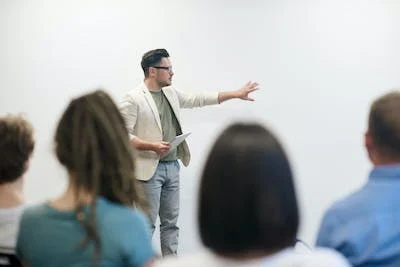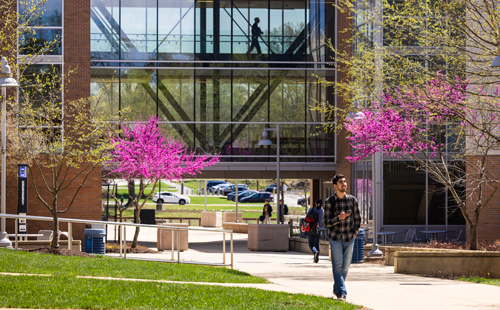
Worse than when a teacher knows nothing about the subject they are teaching is when they discuss topics unrelated to the class. This is especially true when it comes to classes that are not about current events or politics. While it can be beneficial to talk about what is going on in the world with parents and friends, staff and students should leave politics at the door.
First of all, allowing staff to talk about current events gives them the opportunity to present biased information. The presentation of one-sided information to students is detrimental for one main reason: it misinforms students. According to a study done by the British Journal of Developmental Psychology, age 14 is when kids often start believing unproven conspiratorial ideas. Students pay enough attention to hear what teachers are saying, but not enough to question whether the information is correct.
Unfortunately, in today’s world, politics tend to be incredibly polarizing. This could lead to a staff member presenting their own biases to students, encouraging them to take sides. It doesn’t matter which side it is; pressuring students into supporting one side in current events further promotes unnecessary conflict.
The complete opposite of having a skewed opinion about something is knowing nothing about it. When learning about current events, especially ones with recent developments, there is a limit to the information and sources that people have access to. If an event happens overnight, a teacher coming to school the next day and talking to their class about it based on one CNN or Fox article is not the most informative or accurate.
This could be almost as harmful as a staff member presenting biased information because when the teacher does not know what they are telling the students, it not only misinforms the students but the teacher as well.
Of course, everyone is entitled to their own opinion. However, teenagers’ opinions can be easily changed just by listening to something their friends agree on. According to a study done by Parent Further, 90 percent of teens have felt peer pressured. If a student sees that all of their classmates are supporting one side, they may feel pressured into siding with their peers.
When it comes to discussing controversial events, there is always a chance of people getting offended, or finding what is being presented insensitive. With current events, especially world events or political decisions that happened overnight, students could still be processing what happened.
With so much diversity at WCHS, many political topics hit close to home for a lot of students. This goes hand in hand with strong opinions and students getting emotional. For example, when students returned to school after the October 7 Hamas terrorist attack on Israel, many Jewish and Israeli students at WCHS were still dealing with shock and loss when the school made an announcement and the topic came up in several classes.
It is inevitable that with so much diversity at WCHS, there is bound to be a long spectrum of different political opinions. This unfortunately means that talking about politics and current events in school could spark arguments.
For example, teachers are always at risk for reporting false information when discussing current events, even if it’s not on purpose. A student calling them out could lead to a heated debate, especially if the student and teacher are supporting different sides. Even worse is the situation where students get into an argument about a political current event. It could escalate and lead to a verbal or physical altercation.
It is true that talking about politics and current events could help inform people and correct those who have been misinformed, and that when talking about current events and politics, the most important thing is to report facts. It is also true that talking to friends and family about current events is one of the best ways to make sure people are correctly informed about the event taking place.
However, when taking the cumulative effect into account, discussing politics and current events in the classroom could cause more harm than good. Due to the risk of more misinformation being spread, arguments happening and students being pressured to take sides, current events and politics should not be discussed in classes unrelated to these topics.








